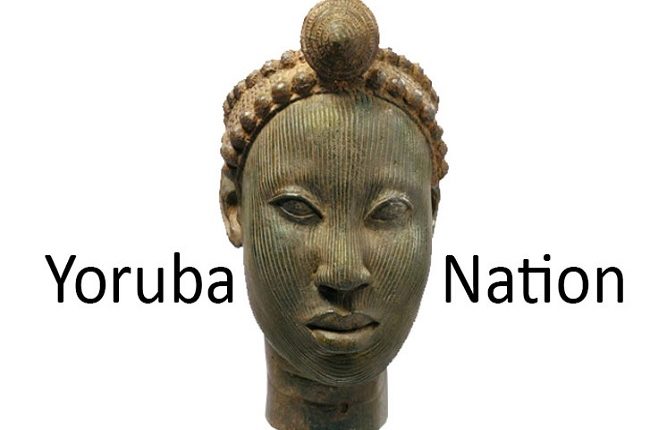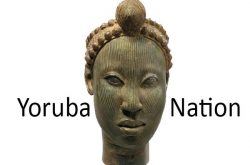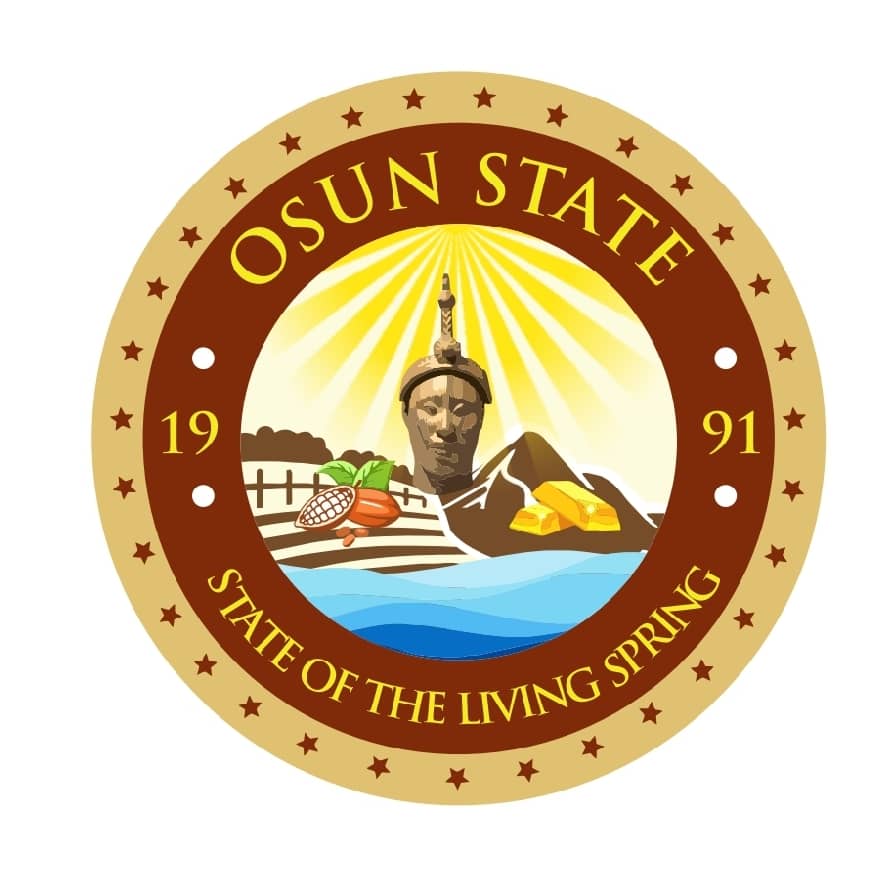The Discourse: Yoruba! What Is To Be Done?


Bamidele Ademola-Olateju
When the revolutionary Vladimir Ilyich Lenin was compelled to write the seminal treatise “What is to be done?” it was not an academic exercise, it was an existential issue. He had to flee Russia after the failed coup of 1905. Lenin was a marked man and tens of thousands of his comrades had their lives on the line. A review of strategy and tactics was not just imperative, it had become a matter of life and death. The current discussion about the “ownership” of Lagos and assorted issues about the direction of the Yoruba nation must be placed in the context of “What is to be done?” Blame trading and the hurling of brickbats and paranoia about other ethnic groups is unhelpful, as it only obscures what is now an existential issue. There are real demographic problems to contend with and this will increase exponentially in this decade, the decades ahead. The margin of error and the space for manoeuvre is tight, a strategic imperative is urgently required.
In an ideal world, a “Durbar” of the type that was held after the release of Chief Obafemi Awolowo from incarceration in 1967 will have been ideal. Such a conference will have been a review and outlook to work out a scenario projection encompassing the immediate, short, medium, and of course the long term. It is however debatable as to whether a leadership ready to do such a review is in place. Leadership is the crucial issue, and much of the perceived problems of today, originated from the lack of focus, projection, and planning. Sadly, we are not in 1967. The basis of any review must accept that for the Yoruba, “the fault lies not in our stars, but in ourselves”. Intellectual honesty dictates this, as the starting point. Raising other ethnic groups as bogeymen completely misses the point. It is also hideous and as objectionable as the United States pro-segregation of yore painting lurid images of African Americans as the be all of all the problems of the world. It inferred that putting the negroes in their place will ignite President Theodore Roosevelt’s hope of “a chicken in every pot and a car in every garage”. No such economic advance happens because of ethnic cleansing.
We have a big structural problem. It will take a structured 15-20-year plan to get out of it, and for us to avoid social cataclysm. We must admit that the Yoruba are at their weakest economic base since the signing of the treaty which ended the Yoruba civil war. The treaty of Kiriji ushered in, a reconstruction and triggered a renaissance in every aspect of our life. The economic impact is seminally preserved for all times in “The Red Book of West Africa “ which was published in 1925, and is now unacceptably out of print. The Red Book documented with pictures and case studies a Yoruba entrepreneurial dominance right across West Africa. The question that must be answered is; why was the dominance and the zeal not sustained? Answering that question begins to unravel the puzzle and constructs the foundation for tackling the root causes of our predicament of today. The renaissance triggered off a massive investment by communities and families in education. This had been ongoing for decades before, then a trickle turned into a flood. This gave the Yoruba a huge lead ahead of any other groups in West Africa. One beneficial aspect was the formation of the West African Student Union (WASU) in London, in the1920’s by Ladi Solanke and thirty Yoruba law students. It was a game changing trajectory.
WASU was a multidimensional powerhouse, part students’ union, part cooperative society, part high powered research institute as well as elite training ground. Unfortunately, since it formally dissolved in 1960 nothing has replaced it, with predictably disastrous effect. Ladi Solanke has not been given his deserved accolades by succeeding Yoruba leadership which tells a lot about our absence of focus and sense of history. As part of our institutional memory, the life and times of Ladi Solanke must be acknowledged in the pantheon of the greats. This must start with financial, moral and archival support for the ongoing documentary project. Many of those who contributed to development in Yoruba land cut their teeth with WASU. WASU turned out to be a leadership development cadre as well as molding and mentorship system. From the system came big hitters such as H.O. Davies (Queen Counsel, like our Senior Advocate of Nigeria SAN) QC, Rotimi Williams QC, Bode Thomas, Fani-Kayode QC, Obafemi Awolowo, S. L Akintola etc. The organisation was pan-West Africa as the name implies, there were students and activists from a cross the sub-region such as Kwame Nkrumah, Archie Casely-Hayford, Joe Appiah from Ghana as well as Milton Margai from Sierra Leone. The organisation was program driven. The program as well as the organisational structure of the British Labour party was of great interest. The input of WASU was important, as it incorporated the main thrust of the Labour Party such as access to health, education and welfare, out of which the Action Group’s “ Life more abundant “ policy thrust was induced. It can be said that the research of WASU aligned with the social democratic thrust of the UK Labour party.


Across the nationalist movements in West Africa, WASU shifted the territory of the discourse in the direction of progressive philosophy and social democracy. The work of WASU provided the road map for the tremendous advances made by the Action Group in the Western region. The AG government realised the debilitating effect of the short-term focused Anglo-Saxon banking model. They set up the Cooperative Bank to modernise agriculture, as well as the Western Nigeria Development Corporation (WNDC), the Western Nigeria Finance Corporation, as well as the pioneering thrust of the Investment Promotion Council. Admirably, the Western Region virtually induced the concept of public, private partnerships. Crucially, after a long battle, the public accepted the need for progressive taxation. The advance was immense. By 1961, people demonstrated against proposed tax cuts having accepted the efficacy of taxation and its benefits to the society as a whole. The schism of 1962 within the AG was disruptive but nevertheless there was the endorsement that the purpose of government is to cater for the overwhelming majority of the population and not just for a few. The policies of the UPN governments in the second republic particularly that of Lateef Jakande reflected this. At the time, those in government had the understanding that social and economic capital are interwoven. The low-cost housing provided by Jakande in a monthly rent-to-own basis reflected this. This was a continuation of the sixties thrust of the Lagos Economic Development Board (LEDB) and of Adeniran Ogunsanya as Federal Minister of Housing and Surveys. We must now face the real issue of where it all went wrong.
THE DISCOURSES: Nigerian Universities And The Noise Of Advancing Ideas
Where It All Went Wrong
The schism within the Action Group in 1962 disrupted orderly evolution and the development of a succession pattern as well as the development of leadership. The. overall development plan was also truncated. Long term plans for the transition from primary to processed value-added products were truncated, and the development of an iron and steel plant in Ijebu-Ode was and is still stalled. For example, the plan for a ban of exports of raw cocoa beans and its replacement with internal processing plants was forgotten. In contrast, Brazil took that route later, and created 400,000 jobs directly and indirectly from the processing of raw cocoa into chocolate. Made in Brazil chocolates are now available in supermarkets in Osogbo, Chicago, Paris and Liverpool. Western Nigeria would have stolen a match on Brazil. The biggest casualty was the neglect of the need to construct social capital as the route to sustainable development and the creation of an ever-increasing middle class. The monthly rent-to-own schemes pioneered by the Lagos Economic Development Board (LEDB) and extended noticeably by Lateef Jakande was disrupted. The concept of long-term capital providers and public, private partnerships were put aside. The end result is that the Yoruba lost their competitive edge. All this went hand in glove with the under-investment in education and access to health. The fault is not in any ethnic group but in the Yoruba leadership which had undermined its own core values and failed to deepen its cultural values.
For example, German economic anthropologists who studied the Esusu capital mobilisation process in Ijesa Land and elsewhere in Yoruba Land used it as plank in the evolution of Germany’s very effective and widely admired “Lander” (community banking) system. The norms of the past played a role in the formation of the Cooperative Bank, the marketing boards, and the structure of markets with the rationale of inducing long term capital providers. Did any ethnic group stop the Yoruba leadership from using the tools of economic anthropology fit the purpose of capital formation and development? We can use the analytical tools of economic anthropology to investigate the structure of markets and how to modernize and infuse capital to reinvigorate markets, create shared prosperity and make the Yoruba a dominant force again. It is not rocket science. The fault lies in ourselves. Whoever is “dragging” Lagos with the Yoruba is doing it from a position of advantage. Capital has not been built up and without capital no group will ever be competitive, let alone be at an advantage.
It is important for us to go back to the drawing board and put regional integration at the heart of the reconstruction of Yoruba Land. To his credit, the President-elect Bola Ahmed Tinubu has consistently advocated the resuscitation of the commodity boards for over a decade, using modern commodity exchanges. This must be a priority from day one of his presidency. In addition, I recommend that all states in the Southwest waive all fees associated with laying fiber optic cables in our cities and towns. This will lead to the creation of many tech hubs and innovation centers. We are all witnesses to the transformation of Yaba due to this. The benefits of taking electricity and the railroads out of the exclusive legislative list can only be done through regional integration instruments. The WNDC must be reintroduced. There are eminent Yoruba development experts that can chair it. We must promote the leasing of land and getting title to all family lands. Lack of land ownership will deepen the emerging structural poverty among the Yoruba. It is obvious that we are going to be demographically outgunned and without the empowerment of capital as an armour, we will lose it all. It is time for a Southwest twenty-year development plan which will be all encompassing. In addition, we must encourage the creation of Credit Unions to enable our people access cheaper credit. This is the way out, not the hurling of insults. Those who luxuriated on a low skill, low income economic format for Yoruba land must accept responsibility for this debacle. Time is now, for a structured plan.
- Bamidele Ademola-Olateju, is a Policy Analyst, wrote from Akure, Ondo State.










